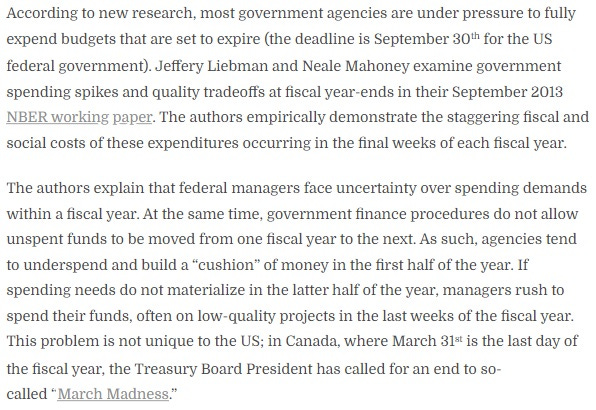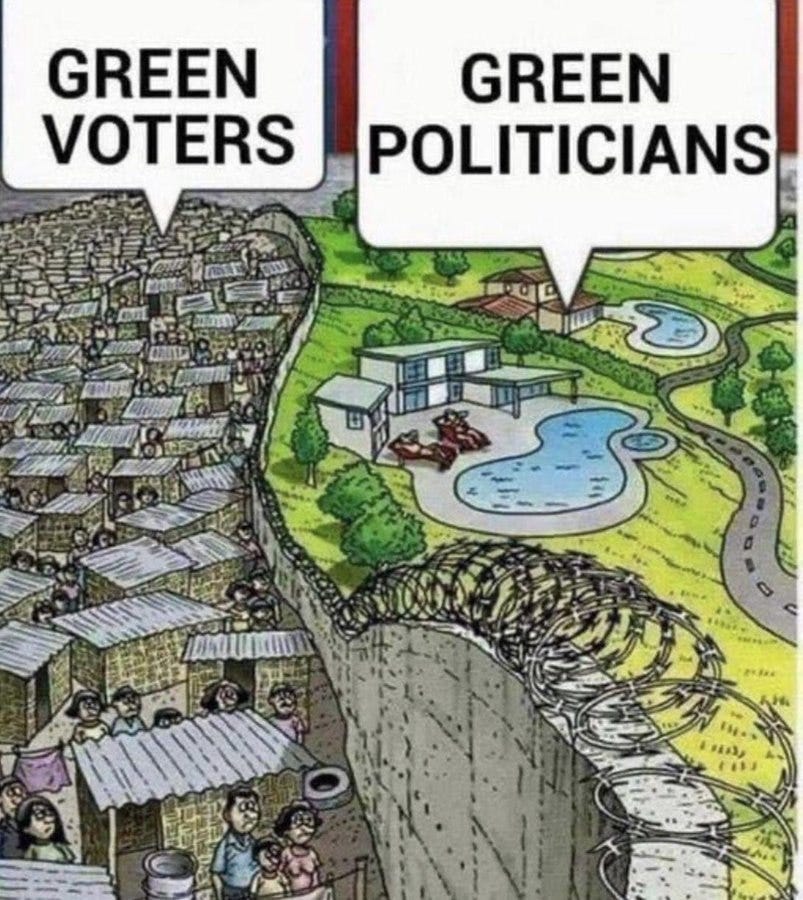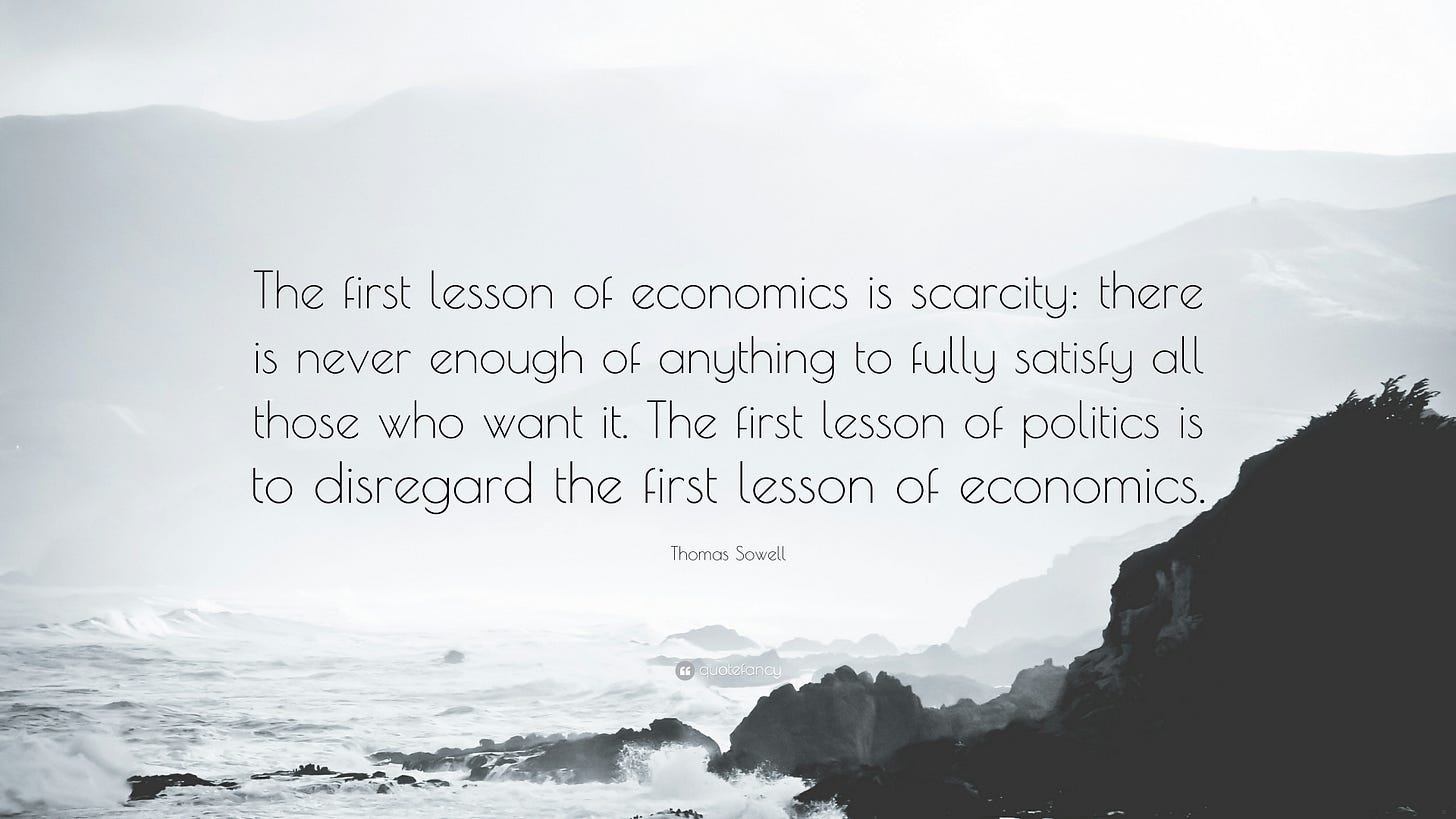When Incentives Go Wrong
Part I: The Incentives
One of the great understated truths about life on Earth is that people (and other lifeforms!) respond to incentives. From the first group of hunter/gatherers who moved with a food source to the first group of farmers who settled down due to fertile soil to the first group of fishermen who created tools to make fetching dinner from the sea easier, humans have been responding to incentives to fulfill their goals (historically, eating - these days, money so we can eat) at least as long as we’ve been recording history.
Perhaps the most common example of incentive-shifting is a sale price. Maybe I won’t buy Oreos for $5.99, but if they are $2.99 I’ll probably pick up a box. The sale price incentivized me to do something that I ‘normally’ wouldn’t do. Corporate incentive-shifting sometimes manifests as a ‘loss-leader’, perhaps a chicken sandwich sold near or below cost to incentivize people to stop in, where they will (hopefully) also purchase high profit-margin items, such as soda and fries.
Other examples of incentive-shifting are common, as well. Picture a weary wife who tells her husband that he’ll get lucky if he does the dishes tonight. We all know there was no way he was going to do those dishes otherwise!
With this in mind, imagine that you have a child living at home - anywhere from 6-18. What do you think would happen if you adopted the allowance rule of “You get $5 a week, but if you’re broke by the end of the week, your allowance goes up $1.”? It doesn’t take a genius to realize the child will ensure he’s broke at the end of every week, no matter how much money he has to spend. If you changed the rule to instead give him money every day he was broke, he would be broke every day. Give him money every hour, he would be broke every hour. At a certain point you would just be constantly handing him money, and he’d be spending it just as quickly.
This is obviously no way to set up your incentives. Only an absolute idiot would think this is a good idea.
Allow me to introduce “Use it or lose it” budgeting.
This is literally how most governmental departments set up their budgets.
With government playing the part of the kid frantically spending his allowance so he gets more later, it’s so surprise that we’re paying more and more for government ‘services’. The incentives in this case are clear — if you don’t spend all this money, you won’t get as much money next year. Not only are these government workers acting rationally, this is the predictable consequence of adopting the “use it or lose it” incentives. It was ALWAYS destined to end up this way. (Thus, we were also destined to get articles telling us how to take advantage of it!)
Now imagine that we replaced that “use it or lose it” incentive with another one — “Excess money in the budget will be split, 50% returned to the treasury and 50% divided as cash bonuses equally between employees.” My guess is that suddenly these employees would find ALL SORTS of ways to save money. (And after a few years of this, we’d actually know the true cost of running the departments.)
Shift the incentives and you shift the behavior.
Of course, incentive shifts aren’t always benevolent like a sale on stuff you don’t really need. The mob coming to your restaurant — Nice little place you got here! — is incentive-shifting via threat of force. Pay up OR ELSE.
Somewhere between a “positive” incentive like a sale and a “negative” incentive like the threat from the mob lies government and its numerous ways to shift the natural balance of incentives — taxation and banning being the most obvious. (So-called “sin” taxes on items like cigarettes are very popular — taxes on gasoline not so much.)
America’s monetary policy incentivizes either spending your cash before it loses even more of its value or throwing said cash into the financial system to try to keep up with inflation. (Meaning the banks win on the way up, then on the way down, then they buy up the home you can’t afford for pennies on the dollar.)
Remember Cash for Clunkers? In the name of taking old, polluting cars off the road, government basically paid up to $4,500 for these cars and destroyed them. That sounds great — if you ignore the fact that lots of people are looking for cheap cars to get back and forth to work and they’ve been priced out of the market by a government that’s DESTROYING assets.
In the same vein as destroying assets is ensuring those assets are never created in the first place. Do you know what happens when you pay farmers not to grow crops? They don’t grow crops! Do you know what happens when you pay people not work? They don’t work! It’s easy for government to set up perverse incentives like this.
For example, these are the same people declaring climate goals like wind and solar power trump everything else — ensuring we get energy shortages when we need cheap energy the most. (If you haven’t yet noticed, cheap energy literally makes the world work.) But don’t fret, citizen, the “leaders” will always have enough energy (or carbon credits!) to maintain their huge homes and fly wherever they wish!
I’ve written an entire article on the horrific incentives that were introduced “for covid” — many of which persist to this day! But equally horrific is the fact that because government has a goal of jabs in arms, it has been systematically hiding or removing data while attempting to mandate said jabs for our servicemembers.
And make no mistake, government’s handling of covid is a glimpse into a government-run system. Inept, focusing on the wrong things, and causing tremendous harm trying to use their sledgehammer of force as a scalpel.
Scarce resources can be distributed two major ways (with near-infinite variations between them): By price via the free market of voluntary transactions, or by political fiat — with government deciding who gets what service.
And I don’t know about you, but I certainly don’t want a government capable of this able to turn off my ability to get healthcare. In Part II, we’ll take a look at what happens when government does have control of healthcare! (Spoiler alert, it’s not great and you might die.)
Finally, I want to respond to a comment from Martha about the ability to crank out content at a good clip:
editor’s note:









But we don't want to know the running costs; if we did, we'd loose opportunities to cultivate mutually agreeable agreements with private industry leaders and businesses (read: opportunity for grift, backscratching, and socialised losses&costs/privatised profits).
And we'd be forced to work in a competitive work assignment structure; studies (that's been cherry-picked from the get-go) shows civil service works better without such, instead focusing on trimming and specialising core competencies vis-a-vis inclusivity and equityamong clients. (Don't need to translate that, you've been to the DMV, yes?)
Also, from the political angle, your suggestion would mean heightened demand for lowering of taxes, and such populist radicalism is a threat to democracy: since politicians are the guardians and paladins of democracy, anything which diminishes or shrinks their freedom and ability to act is an attack on democracy itself.
(They really do think that way, no sarcasm intended.)
We have the same perverse incentive-structure here, ever since the 1980s/1990s, when neoliberalism and its inbred family of moronic theories got implemented.
“What’s a picture of Ukrainian president Volodymyr Zelensky doing here?”
<- We all know what that picture is doing right there...in that particular post. Just sayin’